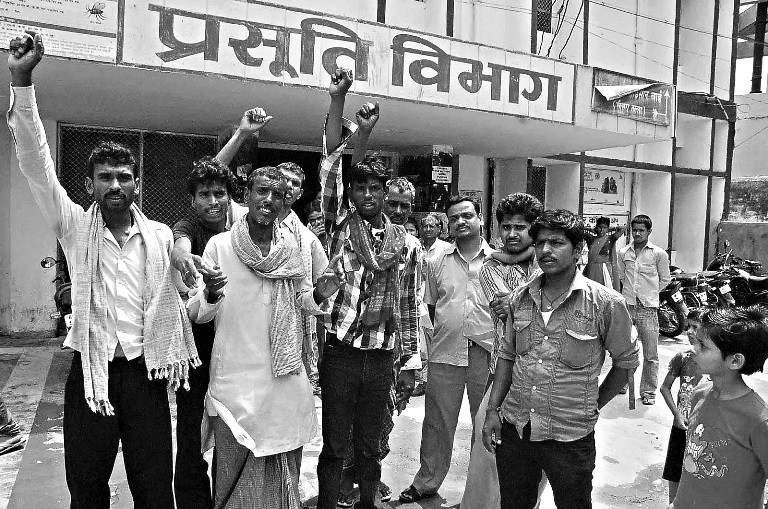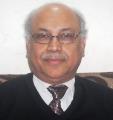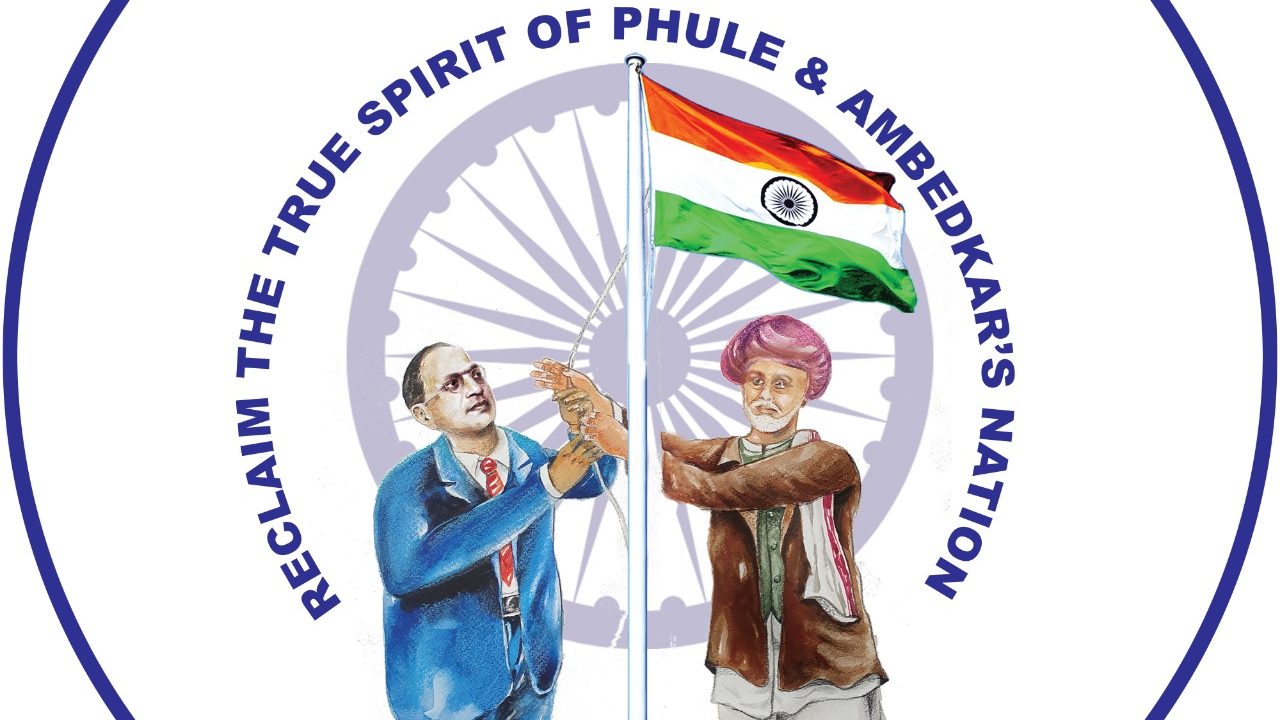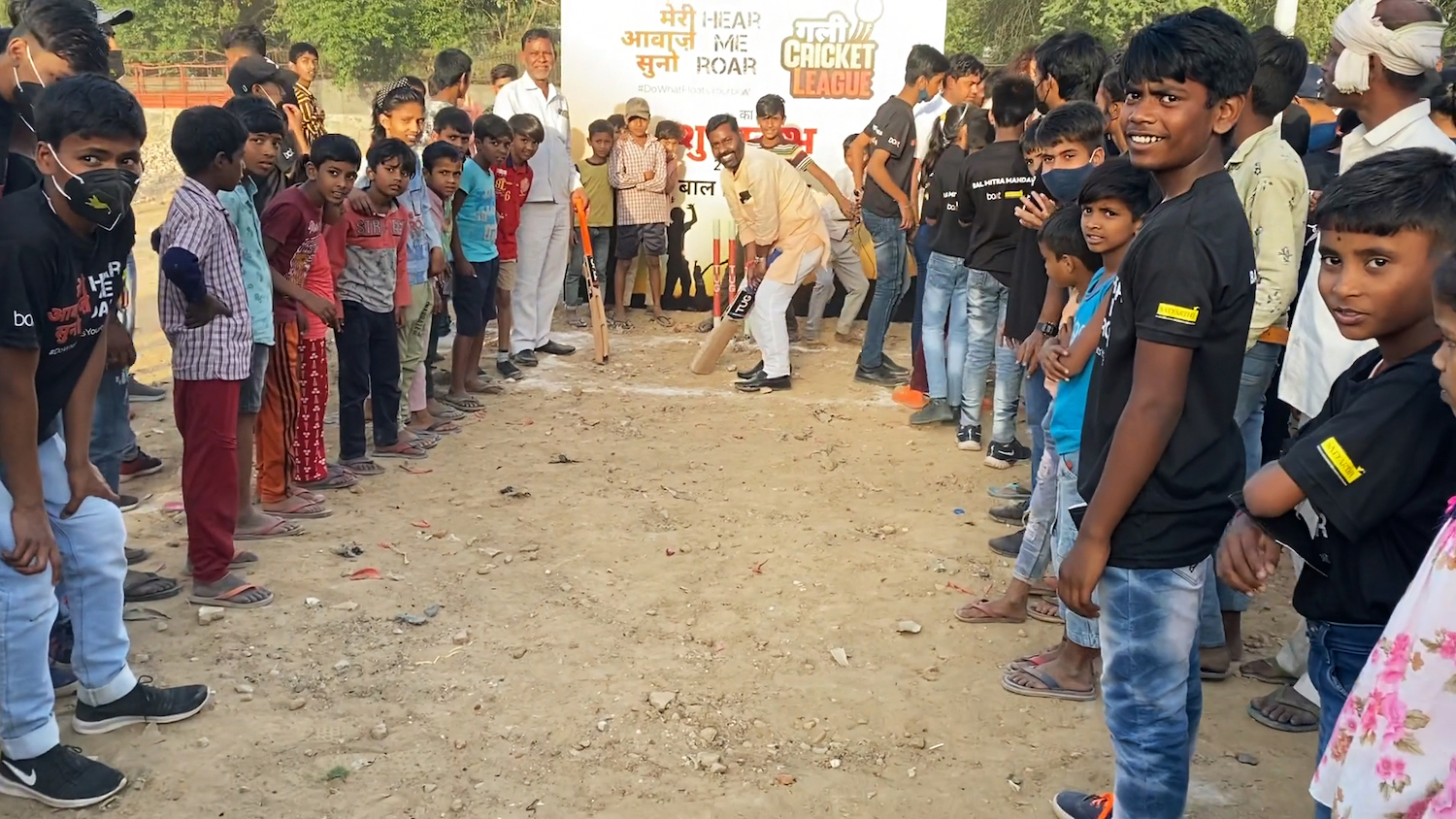The government, at present, does not provide healthcare at any level, be it primary, secondary or tertiary, as a right. Its approach is more of charity than of duty. There are many healthcare schemes run by the government, but no laws on healthcare. Hence a citizen cannot lay his claim over anything. Whatever little the system is offering in the name of healthcare has to be accepted without any questions or protest.
As they say, beggars and borrowers cannot be choosers. In most of the government-run hospitals and health centres, after standing in several long queues for hours and losing an entire working day, all that a poor patient gets is a prescription, that too if he is lucky enough to see the doctor. Then, having reached the head of another long queue, one or two odd medicines may be procurable from the hospital dispensary. For the rest, there are private medical stores right outside the hospital.

A number of medical aid schemes, such as the Delhi Arogya Nidhi, Rashtirya Arogya Nidhi and Health Minister’s Discretionary Grant, have been introduced from time to time but the government wishes to retain its discretion on who will be assisted, for it certainly does not wish to assist everyone. These schemes accordingly finance treatment for certain diseases, and they have a ceiling, and riders such as domicile of the patient, family income being under a certain limit, etc. There is no general policy covering the entire population. Moreover, if the cost of treatment exceeds the limit fixed by the government, the patient is left to die.
Private hospital beds for EWS
Responding to a PIL filed by Social Jurist, the Supreme Court on 01/09/2011 directed private hospitals of Delhi, which have been set up on public lands granted to the owners at concessional rates, to provide free treatment to patients belonging to economically weaker sections (EWS) so that they form 25 percent of total OPD patients and 10 percent of the IPD patients. Today, 44 hospitals have been identified as being under this obligation.
The Supreme Court’s directions have resulted in a movement. With the rise in awareness and assertiveness of the poor in the city, there has been a considerable increase in the occupancy of EWS beds in these hospitals. With rise in occupancy, however, the limitations of this provision have also become more conspicuous. Clearly, the identified private hospitals have a limited obligation, which gets over the moment their EWS quota is exhausted. Hence, only the government can ensure that no patient is left without medical care.
The larger issue
We do not have even a statutory right, forget a fundamental right, to health in our country. Today, the right to health derives from the right to life under Article 21 of the Constitution. It has received some acceptance from the Supreme Court. However, in the absence of clear and specific entitlement in the Constitution, this right remains vague. Further, the major court decisions so far have been limited to right to medical aid in life-threatening situations. Although there is no bar upon interpreting right to life under Article 21 as a right to a healthy life with the provision of adequate medical facilities, jurisprudence on health in our country has yet to reach that stage.
Recently, we approached the courts for patients whose lives were not in danger, but whose conditions prevented them from healthily enjoying their lives. A teenage girl has Turner’s syndrome. Besides having a stunted growth, she is also at a high risk of developing reproductive and kidney disorders. The girl requires growth hormone therapy, which costs around Rs12,500 a month. The PM Relief Fund has financed four months’ treatment. However, since an incomplete treatment would do no good to the patient, we have moved the Delhi High Court asking the government to bear the cost of the complete treatment. The Delhi High Court has already ordered continuation of treatment till November 17, the next date of hearing.
In Paschim Banga Khet Mazdoor Samity vs State of West Bengal (1996) 4 SCC 37, the Supreme Court has held that it is the Constitutional obligation of the government to provide adequate medical services to the people and that the government cannot opt out of it on account of financial constraints. This Constitutional obligation has to be kept in mind, the court added, while allocating funds for medical services. In this case, a man had fallen off a train and sustained serious brain injuries. After several government hospitals refused treatment citing shortage of beds and lack of expertise, he had to approach a private hospital. Thereafter, he filed a case seeking compensation from the government.
Mohd. Ahmed (Minor) vs. Union of India
Recently, ruling on Mohammad Ahmed’s case pertaining to Gaucher’s disease, the Delhi High Court has dealt with several issues pertaining to the right to healthcare, financial constraints of the government, corporate social responsibility, policy on rare diseases, etc, at length. The court has held that although obligations under Article 21 are generally understood to be progressively realizable depending on the available resources, some of them, such as providing access to essential medicines at affordable prices, form the core and are nonnegotiable. The court further observed that by their inaction, the central and the state governments had violated Articles 14 and 21 of the Constitution.
Mohammad Ahmed suffered from Gaucher’s disease Type I. His father, being a rickshaw-puller, was unable to afford the cost of the treatment. Ahmed’s four siblings had already died of Gaucher’s. Ironically, all of them had died at government hospitals for want of medicines. He approached the Delhi Health Services for a grant under Delhi Arogya Nidhi scheme. The one-time grant of up to 5 lakh rupees, however, could only pay for the treatment for one month, the cost of Enzyme Replacement Therapy (ERT) being 4.8 lakhs at that time. So, when he sought my assistance, I filed a petition in the Delhi High Court on his behalf. The court ultimately directed the Delhi government to provide the treatment to the petitioner free of cost but not before it had recorded in its judgment a glaring example of double standards: the same governments have reimbursed medical expenses running into crores of rupees towards treatment of the kin of their employees and of Legislative Assembly members.
The way ahead
A right to life clearly means a right to a healthy life, with requisite medical services, too. But at the same time, the right to health is worthy of an explicit recognition in the Constitution. An implicit reference to the right to health would leave it at the mercy of judicial interpretations. The only way out is to legally bind the government to provide free medical treatment to all, irrespective of their financial status. It has also been observed that those above the poverty line or the EWS income limit are no better placed in terms of being able to afford treatments.
Thus, it is imperative to amend the Part III of the Constitution to make right to public health a fundamental right. Further, the Seventh Schedule should be amended and the subject, public health, presently a state subject as Entry 6 in List II, should be transferred to List III, ie the Concurrent List. The central government should enact a national law on the right to public health on the lines of the Right of Children to Free and Compulsory Education Act, 2009. Till the time this happens, public health in India will be subject to the vagaries of government policies.
This is an edited version of the lecture delivered by Ashok Agarwal at the South Asia LSD Symposium in New Delhi on August 31, 2014.
Published in the December 2014 issue of the Forward Press magazine
Forward Press also publishes books on Bahujan issues. Forward Press Books sheds light on the widespread problems as well as the finer aspects of Bahujan (Dalit, OBC, Adivasi, Nomadic, Pasmanda) society, culture, literature and politics. Contact us for a list of FP Books’ titles and to order. Mobile: +917827427311, Email: info@forwardmagazine.in)





